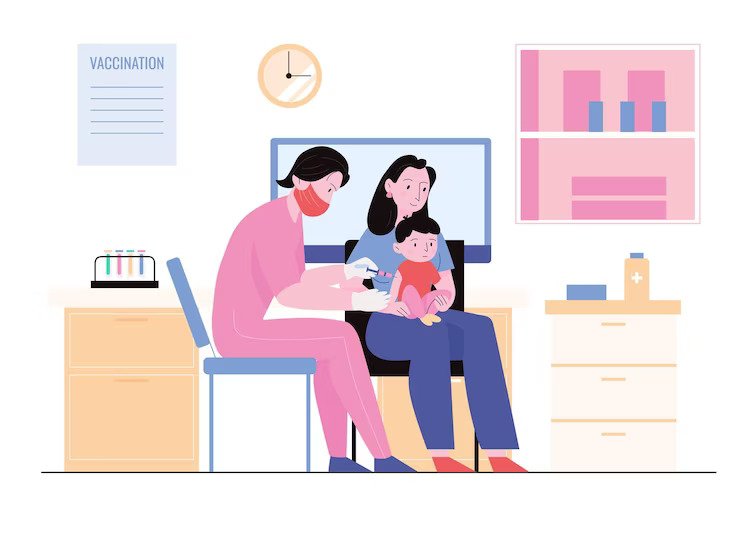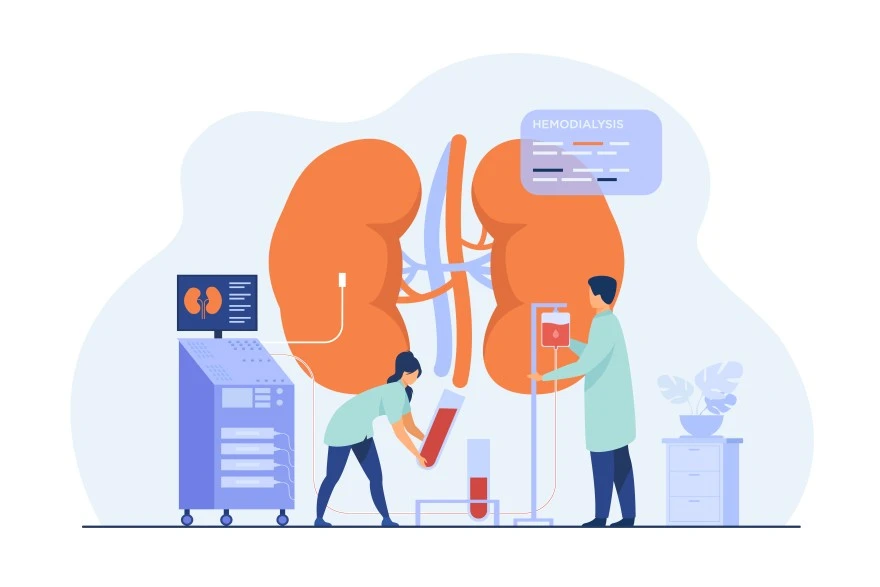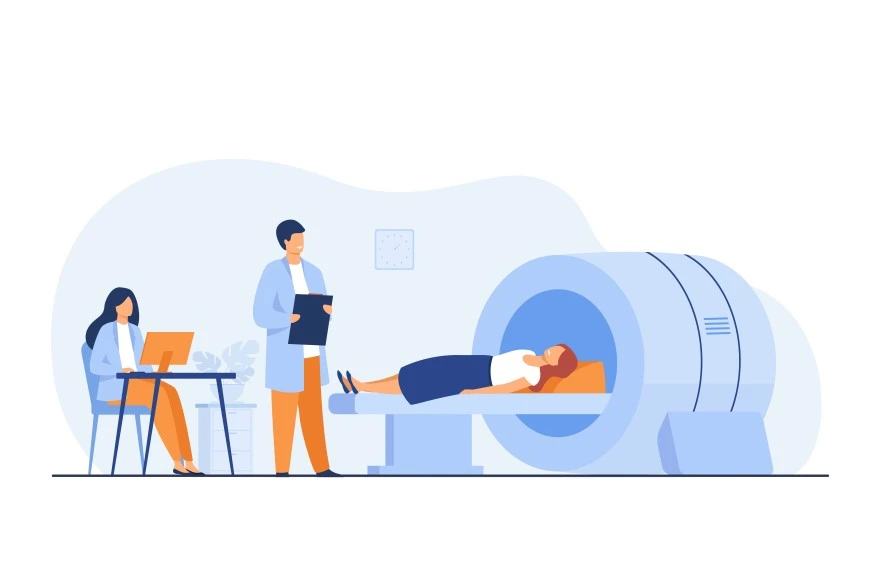Preventive Healthcare
NewBorn Screening (NBS) Test: Significance, Procedure & Result

Table of Contents
- What is NewBorn Screening (NBS) Blood Test?
- Significance of The NewBorn Screening (NBS) Test
- Necessary Newborn Tests After Birth
- Procedure of NewBorn Screening (NBS) Test
- Price of NewBorn Screening (NBS) Test
- Physical Tests and Preventive Measures
- How are The Tests Performed?
- Result of NewBorn Screening (NBS) Test
The birth of a newborn child is a cause for celebration among families worldwide. However, there is also a cause for concern initially, as the infant is vulnerable, and their health markers need to be appropriately checked before taking them home. Hospitals are particularly aware of this and strive to ensure the newborn's health. One of the primary ways to do this is with the help of a Newborn Screening Test, or NBS Test for short. This blog will address its definition, importance, procedure, and results.
What is NewBorn Screening (NBS) Blood Test?
An NBS test is a blood test done on newborn babies to check for certain conditions that can be treated if found early. The blood test is usually done within the first few days after birth.
The conditions screened for vary from country to country, but in general, they include conditions such as phenylketonuria (PKU), congenital hypothyroidism, severe combined immunodeficiency (SCID), and cystic fibrosis.
NBS tests are important because they can help to find these conditions early before any symptoms develop. This means that treatment can be started early, often improving the outcome.
Significance of The NewBorn Screening (NBS) Test
As mentioned above, an NBS blood test can screen for a few conditions. But to understand the real significance of the test, these conditions will be categorized based on general categories for better understanding. Therefore, an NBS test can be taken to check if the baby has the following:
Metabolic Problems
A number of different types of metabolic problems can occur in the body. While they can be caused by a variety of factors, including genetics, diet, and lifestyle choices, in terms of genetics, one of the biggest factors is enzymes. Infants who lack these enzymes can suffer metabolic problems that can lead to several different health issues, including diabetes, obesity, and heart disease, as well as conditions mentioned above, such as phenylketonuria (PKU), methylmalonic acidemia, tyrosinemia, citrullinemia, medium chain acyl CoA dehydrogenase (MCAD) deficiency, and more.
Hormone Problems
Hormone problems are one of the most common reasons people visit their doctor. Hormones are chemicals that are produced by the body to control various functions. In infants, when certain glands produce hormones in an unusual amount, it can cause various symptoms, such as congenital thyroid disorders. The thyroid is a small gland in the neck that produces hormones that regulate metabolism. When the thyroid doesn't produce enough hormones (hypothyroidism), it can cause fatigue, weight gain, and other symptoms. If it produces too many hormones (hyperthyroidism), it can cause anxiety, weight loss, and other symptoms.
Haemoglobin Problems
Haemoglobin is the protein in red blood cells that carries oxygen throughout the body. A low haemoglobin level, called anaemia, can cause fatigue and other problems.
There are many types of haemoglobin disorders, including sickle cell disease and thalassemia. These disorders can be diagnosed with a simple blood test. The NBS test is a newborn screening test that can identify certain haemoglobin disorders.
A positive result on the NBS test does not necessarily mean that your child has a haemoglobin disorder. It just means that further testing is needed to confirm the diagnosis. Treatment for haemoglobin disorders varies depending on the specific disorder.
Necessary Newborn Tests After Birth
There can be different types of newborn tests after birth, which include:
- Rating on the Apgar Scale
Experts perform this critical yet simple assessment of a newborn between one and five minutes after birth. This newborn screening test scores are rated on a scale of 0 to 10 based on the observations made in five categories- pulse, appearance, muscle tone, breathing, and reflexes.
- Vitamin K Shot
Since the majority of newborns are vitamin K deficient, within 6 hours of birth, they get a vitamin K shot to improve their body’s blood-clotting potential and to prevent dangerous conditions.
Procedure of NewBorn Screening (NBS) Test
NBS blood test is a genetic test conducted on a newborn baby a few days after birth to screen for the above-mentioned congenital disabilities. The test is also known as the heel prick test or Guthrie test. It is a simple and quick procedure that involves taking a small blood sample from the heel of the baby's foot.
A health professional will take a small blood sample from the heel of the baby's foot using a sterile needle and tube. The blood sample will then be sent to a laboratory for analysis.
Price of NewBorn Screening (NBS) Test
As with any blood test or diagnostic procedure, the price range for an NBS test can vary significantly across different countries and laboratories. Therefore, depending on the child's country of origin, an NBS blood test can be affordable or expensive. However, in most cases, it is moderately priced. If possible, select a lab that can provide some form of discount. Companies might also cover the cost of the test for those who have health insurance for the family, including the infant.
Physical Tests and Preventive Measures
Besides conducting some of the most critical newborn screening tests during your newborn’s hospital stay, your healthcare provider will also:
- Count your newborn’s toes and fingers to note if anybody's features or parts appear abnormal.
- Measure and weigh your newborn’s head circumference and length.
- Check your baby’s hip rotation, umbilical stump and reflexes.
- Analyse your newborn’s internal organs, such as the spleen, liver and kidneys, externally through touch.
- Administer the first hepatitis B vaccine and antibiotic eye ointment dose to prevent infections.
- Record your newborn’s first poops and pees to rule out elimination problems.
How are The Tests Performed?
Every parent wants their child to be happy, safe, and healthy. Therefore, the importance of newborn screening comes into the picture. The following tests are a part of newborn screening.
- Blood Test: Your doctor/ healthcare provider will draw blood from the heel of your baby's leg. The blood will be sent to a laboratory for further analysis.
- CCHD Screen: Your doctor will place a soft small sensor on the baby's skin and then attach it to an oximeter. He will place it for a few minutes. The oximeter shall measure the oxygen levels of your baby in the foot and hand.
- Hearing Test: The health care service provider shall place a tiny microphone for the earpiece in the ear of your infant. Another method is to use an electrode that will be placed on the head of your baby while they are asleep or quiet.
Result of NewBorn Screening (NBS) Test
The NBS test results are usually available within two weeks. A positive result means the baby has an increased risk for one of the conditions tested for, such as cystic fibrosis or sickle cell disease. A negative result indicates that the baby does not have an increased risk for these conditions.
However, it is important to remember that just because an infant tested positive on an NBS blood test, it doesn't mean for sure that the child has a defect or condition. To ascertain this, further testing will be required. When a child gets a negative result on an NBS test, the parents aren't even notified in most cases. They are usually contacted only if the result is positive.
Conclusion
The NBS test is a simple and affordable screening for certain congenital disabilities. Despite its utility, it is essential to remember that the NBS test is not conclusive, but it can help identify babies who may need further testing. The test is quick and easy, and the results are typically available within a few days. It can majorly help screen for hormonal and metabolic conditions and conditions pertaining to hemoglobin levels in the infant's body.
To get an NBS blood test for your newborn child, reach out to us at Metropolis Health. A key player in the global medical diagnostic field, our labs are geared to offer this and many other diagnostic tests at an affordable price. Simply walk into any of our thousands of labs spread across various continents, or call the nearest center close to your location.





































